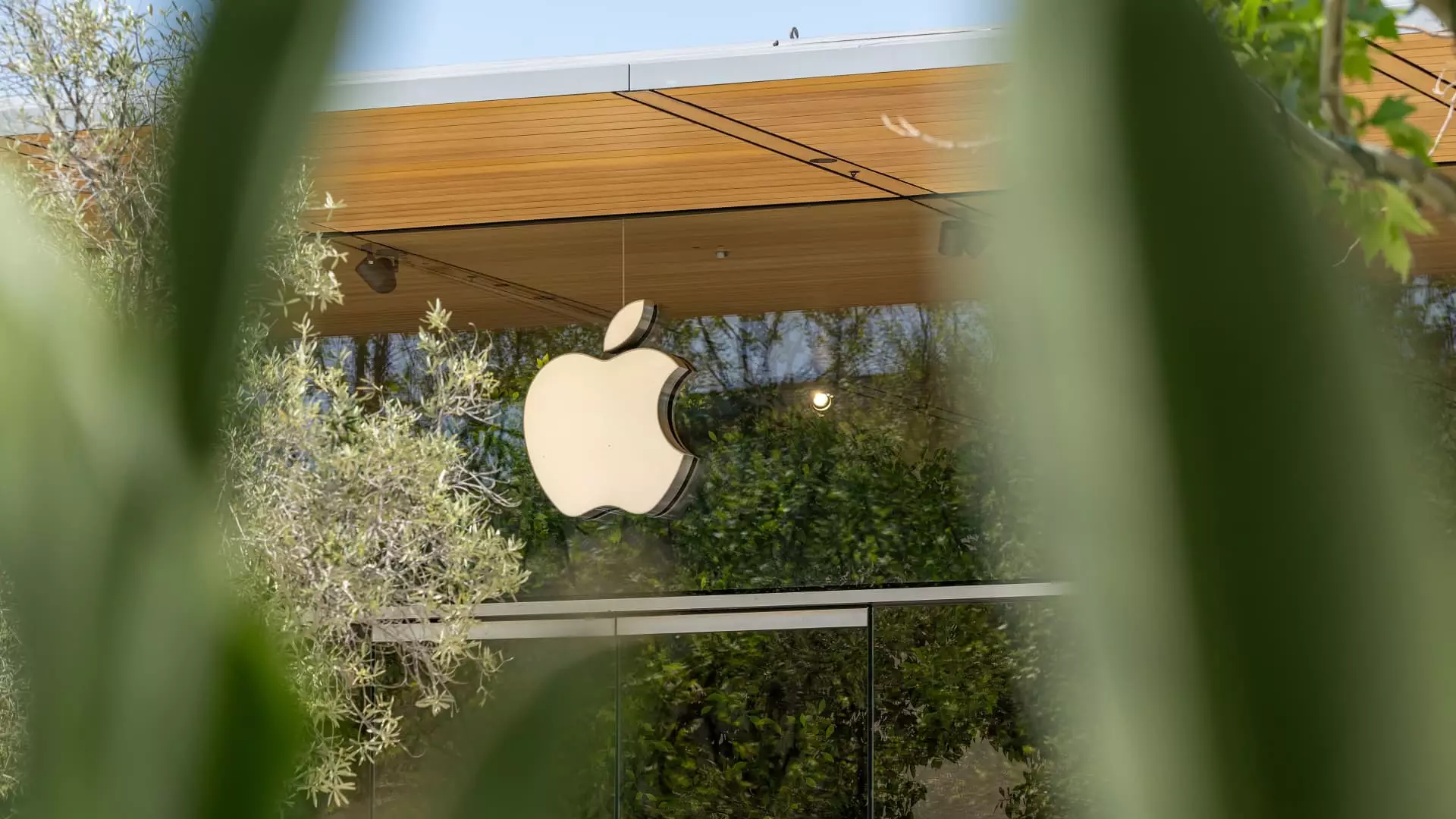The legal tussle between Apple and Epic Games, unfolding in a U.S. court, epitomizes the relentless struggle for dominance in the digital marketplace. As Apple seeks to pause a pivotal ruling that allows developers to bypass its hefty commission fees, the implications extend beyond the courtroom. This infringement of Apple’s traditional business model could significantly reframe the landscape for app developers, inviting them to assert their pricing power. Understanding this conflict requires a comprehensive analysis of its underlying motivations and potential outcomes.
The Financial Stakes: A Game of Billions
Apple’s argument revolves around the profound financial consequences of Judge Yvonne Gonzalez Rogers’ ruling, which could cost the company between “hundreds of millions” and “billions” annually. Such figures are not mere statistics—they represent the lifeblood of a tech giant that has prospered through a system reliant on in-app purchases. The ruling mandates a shift in how payments are processed, offering developers an avenue to route transactions through external websites, avoiding Apple’s cut altogether. For a corporation that thrives on tight control over its ecosystem and lucrative margins, this could indeed spell a financial earthquake.
Consider the broader implications of such autonomy for developers. With players like Amazon and Spotify already making headlines by leveraging this ruling, the groundwork has been laid for a more competitive environment. Developers not only stand to benefit from increased revenue but also create an enriched consumer experience, one that frees users from the constraints imposed by Apple’s commission.
Innovation vs. Monopoly: The Double-Edged Sword
Epic Games’ CEO Tim Sweeney champions the idea that the ruling forces Apple to compete and, in doing so, spurs innovation. This assertion presents a compelling narrative: that monopolistic practices stifle creativity and progress within digital landscapes. Sweeney’s sentiment echoes a universal desire for fairness and opportunity within markets. However, this idealistic view cannot overshadow the risks inherent in drastic shifts to established business practices.
Apple argues that the capacity for competitive pricing could lead to confusion and a reduced standard of safety for consumers. A dilution of quality control in the name of competition could easily unfold in an environment where app developers prioritize profit over user experience. Absent the checks that the App Store creates, the consumer could suffer from poor service and unregulated transactions.
The Legality of Competition: A Question of Fair Play
Amid this contentious backdrop lies a fundamental question: is Apple’s conduct anti-competitive, or is it merely protective of its business interests? It’s important to recognize the thin line between facilitating competition and undermining a business’s right to operate profitably. While Epic’s legal strategy aims at dismantling Apple’s control over in-app payment systems, it risks inadvertently legitimizing practices that could lead to a chaotic marketplace.
The referral made by Judge Rogers, accusing Apple of misleading the court, adds another layer of intrigue to the saga. Accusations of dishonesty at the executive level inject an ethical dimension into the equation, examining not only what is permitted under competition law but also the integrity of corporate governance. Apple’s approach to compliance and strategy amidst these allegations raises valid questions regarding corporate responsibility.
A Broader Reflection on Digital Commerce
As this legal battle plays out, we must consider its broader implications on digital commerce as a whole. In an age where app development is synonymous with innovation, the potential flattening of commission structures could democratize revenue models, enabling smaller developers to flourish. This democratization could lead to a surge in creativity and diversity among app offerings.
Yet, the solution does not solely rest in dismantling Apple’s business model. A delicate equilibrium must be sought—one that promotes healthy competition while preserving the necessary infrastructural principles that underpin the app ecosystem. The success of this conflict might set critical precedents that extend beyond Apple and Epic, shaping how platforms and developers interact in the burgeoning world of digital commerce for years to come.
While the outcome remains uncertain, the ramifications of this battle could redefine not just how apps are monetized, but also how consumers engage with the digital marketplace. Innovation and ethical practices must coexist for the integrity of the market; merely choosing one over the other could lead to dire consequences for consumers and developers alike.

